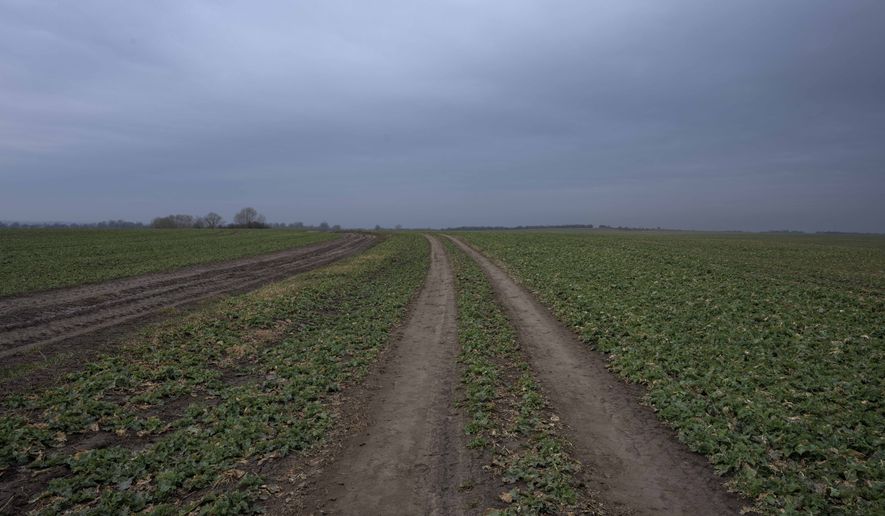The war in Ukraine has created a perfect storm leading to skyrocketing food costs sparking fears that a looming food security crisis could lead to further destabilization around the globe.
With a global economy already battered by pandemic-related supply chain constraints, the war in Ukraine has led to even sharper increases in food costs stemming from disruptions in wheat and fertilizer export markets.
John Rosen, a professor of economics at the Pompea College of Business at the University of New Haven, said the already volatile situation could very quickly spiral into a global catastrophe.
“There’s an awful lot of evidence that most revolutions start with bread riots,” he said. “It is possible that those shortages could be bad enough to set those off in poor countries, and you never know where that kind of effect is going to end.”
Together, Russia and Ukraine account for nearly a third of the world’s wheat exports. In March, the U.S. Department of Agriculture (USDA) projected that wheat exports from the two countries will fall by 7 million tons, or 12% below pre-invasion projections. As a result, wheat prices have surged globally, up 62% from January through late March, according to the Atlantic Council.
Mr. Rosen said, even under perfect conditions, it would be nearly impossible for farmers in other grain-producing countries to make up for a full stoppage of grain exports out of Ukraine and Russia.
“Even if they have perfect weather, they just can’t possibly plant and grow enough wheat,” he said. “One hopes the only serious impact of that will be increased prices. I fear there will literally be shortages of grains and food that will, of course, hit poor countries the hardest because, by definition, they don’t have enough money in the first place.”
But the conditions farmers face outside of Ukraine are far from perfect. Russia is also a leading exporter of essential fertilizer inputs like potash and ammonia, and Western sanctions meant to punish the Kremlin have also meant skyrocketing costs for farmers around the globe.
“The official estimates from the Department of Agriculture are that in the U.S., fertilizer bills are expected to go up 12% this year,” Mr. Rosen said. “They already went up 17% in 2021.”
Mr. Rosen said rising fertilizer costs lead to farmers planting fewer acres. Some will simply go out of business.
“As a result, we’re going to have less food,” he said.
Lawmakers from both parties have begun to sound the alarm. On Tuesday, Senate Foreign Relations Committee Chairman Robert Menendez, New Jersey Democrat, and Idaho Sen. James E. Risch, the panel’s ranking Republican, warned of an increasingly dire food insecurity crisis facing countries around the globe.
“The impacts of [Russian President Vladimir] Putin’s war are exacerbating an already grave humanitarian crisis triggered, in large measure, by the devastating effects of the COVID-19 pandemic on global hunger and poverty,” the lawmakers wrote in a letter to President Biden. “The compounding effects of these cascading events may create one of the worst food insecurity crises in decades.”
In their letter, the lawmakers called on the administration to coordinate a “strong, coordinated and innovative response,” to the crisis, which they said, “threatens to push millions of people into hunger and destabilize regions of strategic importance to the United States.”
In a separate letter to Mr. Biden on Tuesday, 96 House Republicans, led by Reps. Tom Emmer, Pete Stauber and Michelle Fischbach of Minnesota, Gregory Francis Murphy of North Carolina, and Jodey Arrington of Texas, called on the administration to “review all available options to lower the cost of fertilizer.”
“Ongoing supply-chain bottlenecks and the rising cost of energy are among the factors sending fertilizer prices soaring, and disruptions stemming from Russia’s invasion of Ukraine will only compound the problem,” the lawmakers wrote. “As a result, Americans will pay more at restaurants, grocery stores, and elsewhere.”
But Mr. Rosen said that even with immediate policy action, the crisis could take years to work out.
“Fertilizer is needed to plant for next year,” he said. “If farmers are cutting back, and they are, … that creates a shortage for next year.”
Mr. Rosen said it could take years for market dynamics to rebalance the global food supply. Eventually, other countries will fill the gap left by sanctions on Russian exports of fertilizer inputs, and high grain prices will eventually incentivize farmers to produce more grain.
“All of that will eventually work, but it will take a few years,” he said. “Meanwhile we’ll be stuck with high prices and shortages.”
• Joseph Clark can be reached at jclark@washingtontimes.com.




Please read our comment policy before commenting.